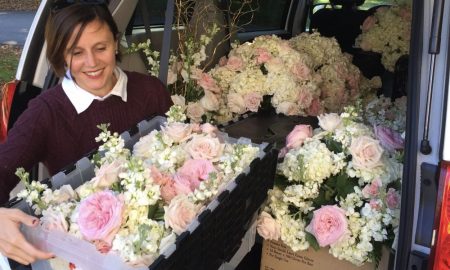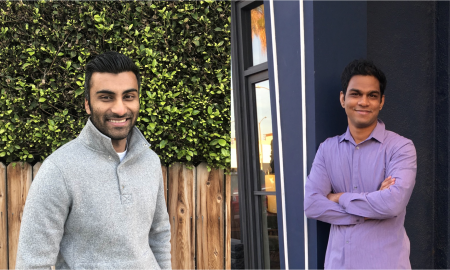

Today we’d like to introduce you to Laura Howes.
Thanks for sharing your story with us Laura. So, let’s start at the beginning and we can move on from there.
I grew up in the Midwest – in a suburb outside of Chicago, so I didn’t grow up by the ocean and I wanted to be a marine scientist. Growing up far away from the ocean helped me decide to go to college in Bar Harbor, Maine at College of the Atlantic – a college with only 350 students. At College of the Atlantic I could focus on marine mammal science. I graduated in 2009 and then worked as an intern for a small whale research non-profit called Bar Harbor Whale Watch. I collected data and educated passengers for one summer, which was the maximum you could do through the program. Following an incredible summer, I began working with the Whale Center of New England, based in Gloucester, MA. We worked with Boston Harbor Cruises, as they contracted us as naturalists on the whale watches. I officially started working with Boston Harbor Cruises (BHC) in 2013, after the Whale Center lost funding. When I started BHC had 2 whale watch boats, and now they have 4 vessels.
Overall, has it been relatively smooth? If not, what were some of the struggles along the way?
It’s been hard to see places like the Whale Center lose funding, when whale populations are being threatened. Currently, it’s estimated that there are only 450 right whales left in the oceans with only 100 of them being females. So far, we have not recorded any right whale calves this season, which is concerning. For certain whales, like the right whales, boaters are supposed to remain at least 500 feet away to give the whale’s ample space to swim freely without getting in the way or threatening their safety. Our team has worked extremely hard to spread awareness to all boaters about the whales and how to properly whale watch! It is frustrating to see recreational boaters maneuvering recklessly around the whales. There are guidelines for all mariners to follow.
Please tell us about New England Aquarium Whale Watch in partnership with Boston Harbor Cruises.
As a naturalist, my job is more than simply taking whale watchers out on the boats and pointing out the whales; we are narrating, photographing and identifying the whales. We carry over 120,000 passengers a year on whale watches, so besides the day-to-day schedule, training and staff management, I focus a lot of my work on educating people about conservation, the biology of the whales, how people can help the whale preservation effort, and doing my best to have whale watchers step off the boat feeling inspired to support the whales. I also, of course, do help spot the whales when we go out for a whale watch. As a team, we use tricks to find the whales, such as going back to where we were the day before, looking for splashing/tails/blow/spout, scanning the horizon, and going to Stellwagen Bank Marine Sanctuary hot spots. It’s also easy to find the whales when other whale watch boats are out. We do not use sonar to locate the whales because it can damage the whales’ ears.
I wear multiple hats as a naturalist, and apart from whale conservation, I am truly passionate about research. During the summer I am collecting research and data on the whales we see on the Whale Watches, and then in the winter months I go through this data to make sure it’s easy to understand for audiences.
I am lucky to be on the Stellwagen Bank Marine Sanctuary Advisory Board. As a board member I help take part in conservation measures and discussions about how to protect and promote the Sanctuary.
What are you most proud of as a company?
I am very proud of Boston Harbor Cruises’ growth over the past five years. BHC has grown quickly and in a short amount of time. They have doubled the number of whale watch vessels from two to four whale watch catamarans. Which in turn, the number of staff has doubled to 10 naturalists and about 15 interns for a total staff of 25 for whale watches.
During our peak season in the summertime, we have up to eight whale watches a day on Saturdays and Sundays, including 9:00 a.m., 10:00 a.m., 11:00 a.m., 12:00 p.m., 1:30 p.m., 2:30 p.m., 3:30 p.m. and 5:00 p.m., and five whale watches a day Monday-Friday including 9:00 a.m., 10:00 a.m., 11:00 a.m., 12:00 p.m. and 2:30 p.m. whale watches.
What sets your company apart from others?
I would say Boston Harbor Cruises’ openness and ability to partner with various organizations. We partner with so many wonderful organizations including the New England Aquarium, the Museum of Science – Boston, Chef Barbara Lynch, and many more, which is unlike any other company in the industry. Boston Harbor Cruises is an agile company, and I love the ability to work with Stellwagen Bank Marine Sanctuary as a part of my schedule to help me become a better naturalist. I am proud to be a part of BHC.
What quality and characteristic do you feel is most important to your success?
I would say that continuously learning and listening to others throughout my career has been crucial. It’s interesting to see what other naturalists or even companies are saying about whale preservation and facts about the whales. It’s also important to consider input from others, remain endlessly curious and excited, and collaborate and delegate as appropriate. I’m excited by wildlife and the whales each day. I never know what we’ll see and things change daily. Some days you don’t see many whales, and other days we see lots of whales. Each day is different and that excites me for the whale watch trip the next day.
Pricing:
- Whale Watch Tickets:
- Adults: $53
- Seniors: $45
- Children (3-11 years): $33
- Under 3 years: $16
Contact Info:
- Address: One Long Wharf Boston, MA 02110
- Website: http://www.bostonharborcruises.com/
- Phone: 617-227-4321 or 1-877-SEE-WHALE
- Email: contact@bostonharborcruises.com
- Instagram: @bostonharborcruises
- Facebook: @bostonharborcruises
- Twitter: @cruiseBHC


Getting in touch: BostonVoyager is built on recommendations from the community; it’s how we uncover hidden gems, so if you know someone who deserves recognition please let us know here.
















